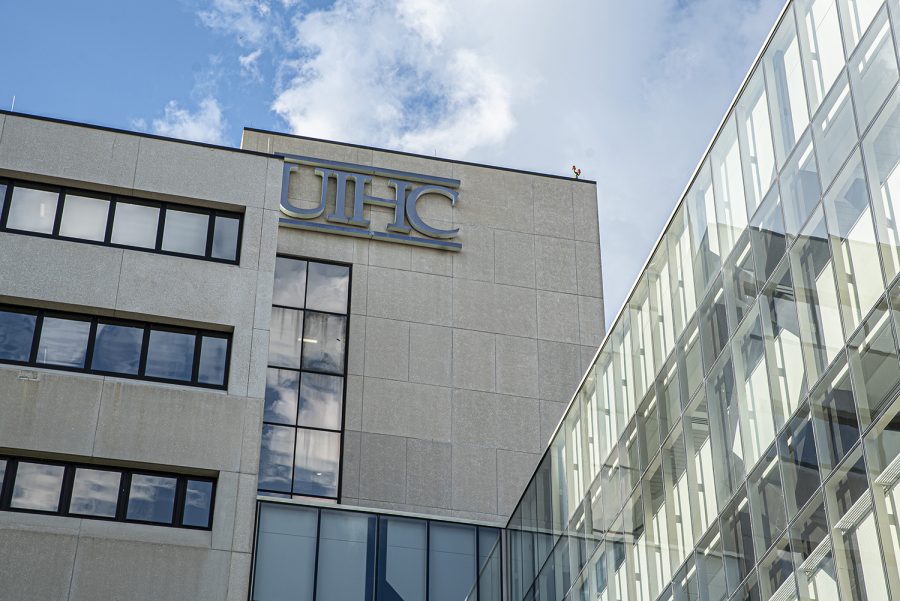University of Iowa Health Care’s graduate medical education team awarded grant to promote diversity, equity, inclusion
The research team received $30,000 from the American Medical Association to help address and stop discrimination in hospitals and clinics.
University of Iowa Hospitals and Clinics are seen on Tuesday, June 23, 2020.
July 16, 2020
University of Iowa Health Care’s graduate medical education team have received a new grant to create and provide educational resources for medical providers and patients to address patterns of discrimination in the field.
The grant’s team, led by Nkanyezi Ferguson, the director of diversity, equity, and inclusion in the Office of Graduate Medical Education, consists of senior resident physician Lauren Hock and Denise Martinez, the associate dean for diversity and inclusion at the Carver College of Medicine.
The grant was awarded last week by the American Medical Association, Martinez said, and is worth $30,000.
“[The national grant] was very competitive … we had to compete with some very respectable hospitals to receive the grant,” Ferguson said.
Hock said she first began teaching about diversity and dealing with sensitive situations with a PowerPoint presentation that showed how to successfully treat patients of different backgrounds equally and with respect, and how to act properly if treated disrespectfully by a patient.
“This program is also very important because it shows people some of the discrimination that patients deal with such as racial, sexual, religious, and gender discrimination,” Martinez said.
Hock said the group was invited to share the workshop with physicians in other departments and eventually to all incoming residents at UIHC as part of their initial training.
“Ferguson has expanded the curriculum to include examples of how to respond to other forms of harassment based on a person’s identity, such as their race, ethnicity, or sexual orientation,” Hock said. “This is a great step toward creating an atmosphere of inclusiveness and mutual respect in medical training.”
She initially felt the need to teach people about the importance of treating patients that are different and how to respond to disrespect after she felt it herself, Hock said.
“I have experienced everything from patients, such as ‘you’re too pretty to be a doctor,’ to things like, ‘I’ve been thinking about you at night,’ or even asking to grab a body part while in the exam room,” Hock said. “These interactions made us feel uncomfortable and embarrassed.”
Hock said these instances made it difficult for doctors to focus on providing the best quality care.
“When we asked our supervisors, they were unsure of how to advise us to handle these situations because they had never been trained on it,” Hock said.
Hock said she hopes the grant and its research team will help people realize how much of a problem exists in the areas of diversity, equity, and inclusion for people that are resident physicians at UIHC.
“I hope that this grant will help prepare health-care workers to handle this common issue,
Hock said. “Training leaders to intervene when they see discriminatory comments being made is an important step toward creating a safer and more inclusive culture and helping residents to provide the best care that they can during clinical training.”
This is a problem that will continue as long as it is allowed to, Hock said, and she said it will be very difficult to create any real change when many of the supervisors are white men.
“This grant will help us expand this program greatly and will hopefully even allow us to share this tolerance, teaching other residency programs throughout the area and hopefully even throughout the country,” Hock said.
















